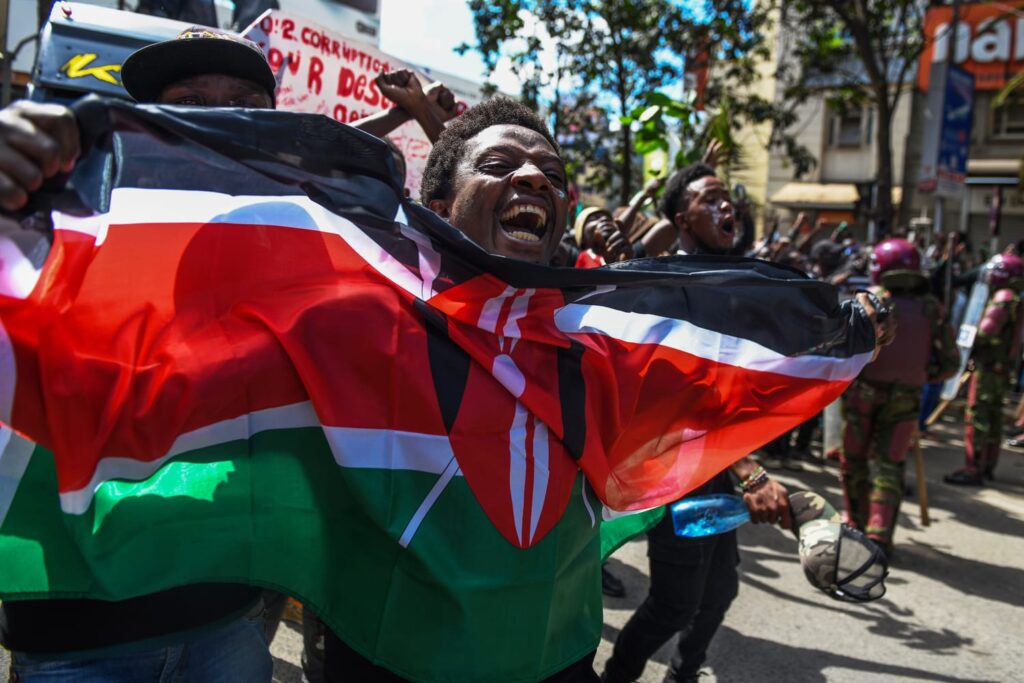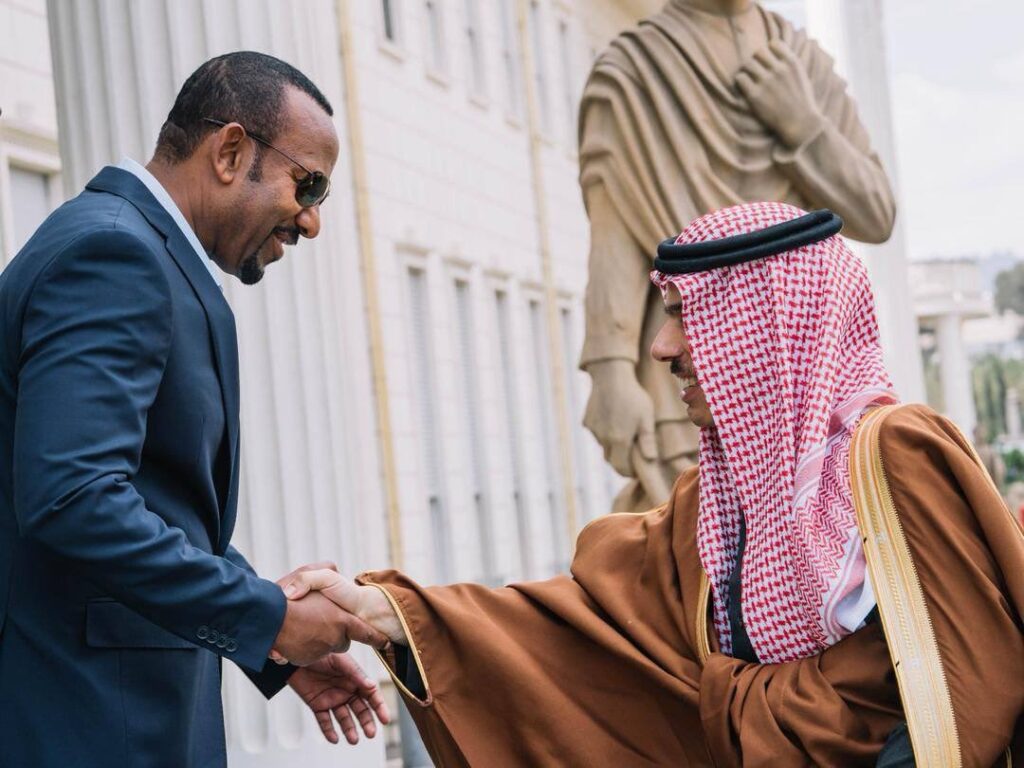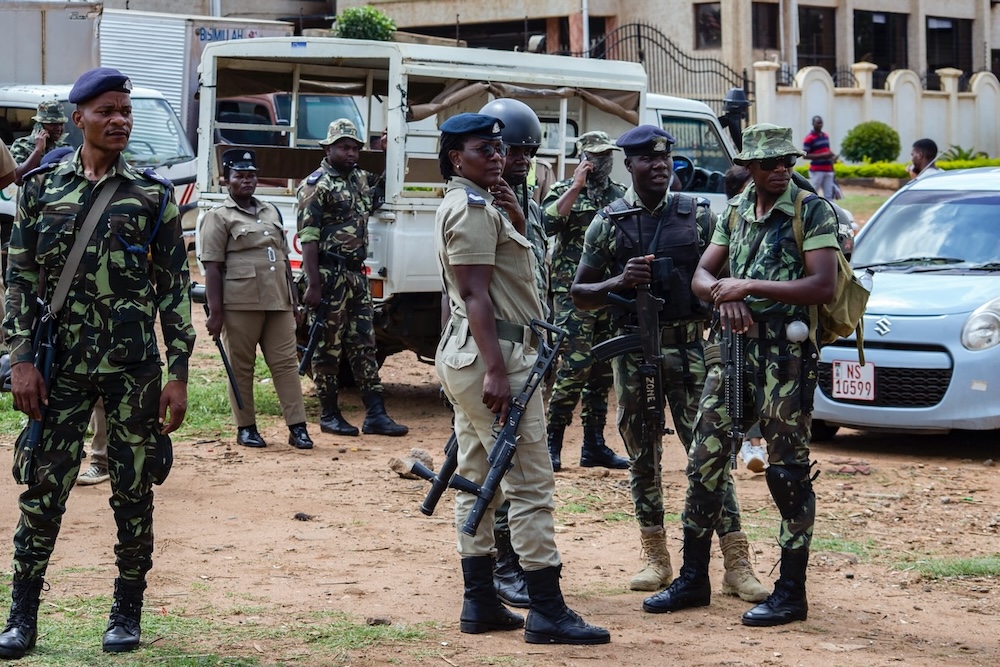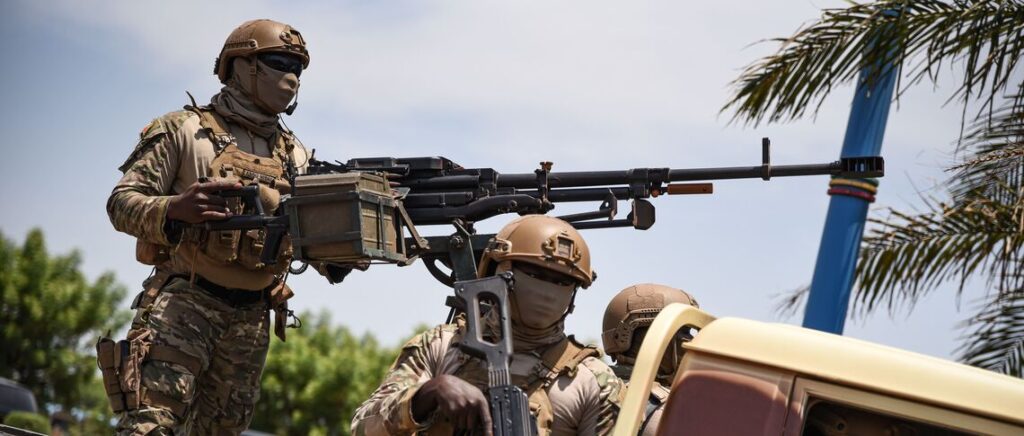
On Thursday, Kenyan police set up roadblocks leading to the presidential palace as some protesters vowed to “occupy State House,” despite President William Ruto’s withdrawal of proposed tax hikes that had sparked a week of demonstrations.
It remains uncertain if Ruto’s decision on Wednesday to scrap the finance bill will placate protesters, following clashes that left at least 23 people dead and briefly saw the parliament stormed.
Ruto is facing the most significant crisis of his presidency, as the youth-led protest movement has rapidly expanded from online complaints about the tax hikes into large-scale rallies demanding political change.
Without a formal leadership structure, protest supporters are divided on the future direction of the demonstrations.
Prominent social justice activist Boniface Mwangi, in an Instagram post, supported Thursday’s demonstrations but opposed invading State House, warning it could lead to more violence and justify a crackdown.
Reporters observed an army vehicle in Nairobi’s central business district, the focal point of Tuesday’s protests, as the government deployed the military to assist police in controlling the unrest.
Some protest supporters decided not to demonstrate on Thursday, given the finance bill’s withdrawal, while others insisted only Ruto’s resignation would satisfy them.
“Right now is not just about the finance bill but about #RutoMustGo,” activist Davis Tafari told media, advocating for Ruto’s resignation and fresh elections.
In his Wednesday speech, Ruto defended the proposed tax increases on items like bread and cooking oil, citing the need to reduce Kenya’s high debt.
However, he acknowledged public opposition and pledged to start a dialogue with Kenyan youth and implement austerity measures, starting with cuts to the presidential budget.
The current protests differ from previous demonstrations in Kenya, which were often led by political figures and mobilized along ethnic lines. These protests have gained widespread support from those frustrated by rising living costs and corruption.
Protests occurred in most of Kenya’s 47 counties on Tuesday, including Ruto’s hometown of Eldoret. Nationwide, at least 23 people were killed, and 30 were treated for bullet wounds, according to the Kenya Medical Association. Medical officials in Nairobi reported scores of injuries.




